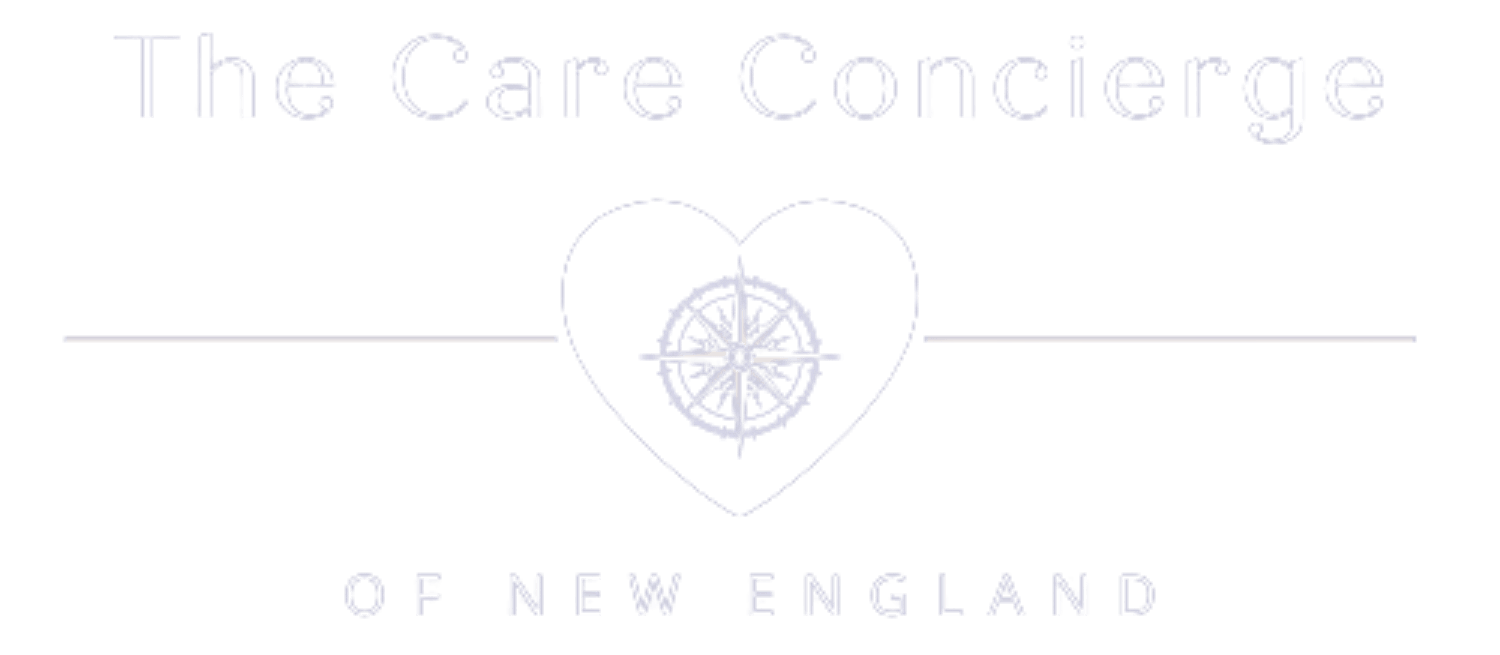
As time unfolds and the pages of life turn to its later chapters, many families are faced with the decision of choosing a safe, comfortable, and nurturing living environment for their elderly loved ones. This journey, filled with emotional considerations and practical concerns, brings forth the topic of senior assisted living—a choice that can profoundly impact the well-being of seniors.
In this blog post, we will explore the various assisted living options available, demystify the selection process, and offer guidance to ensure that the next chapter for your cherished family member is written with care, dignity, and a sense of lasting community. Join us as we navigate the waters of senior assisted living, helping you to make an informed decision that celebrates the golden years of life.
Understanding Your Options: Exploring the Different Types of Senior Assisted Living Facilities
When embarking on the journey to find the most suitable assisted living facility, awareness of the diverse options is crucial for meticulous decision-making. First are traditional assisted living communities, designed with a blend of independence and support, providing personal care services as needed. These communities cater to those who do not require intensive medical oversight but may need assistance with daily activities.
As an extension, certain facilities evolve into a more comprehensive senior living community, encompassing a range of care levels, often including skilled nursing facilities. Here, medical professionals offer round-the-clock services to assisted living residents with more complex health needs.
Each assisted living community strives to create a homely atmosphere where family members can have peace of mind knowing their loved ones are in a secure, nurturing environment. Cost, a crucial determinant, varies significantly across facilities and typically hinges on the extent of care needed and the type of amenities provided.
It's thus imperative to compare the assisted living costs with the facility offerings to find the best fit for your loved one's needs and the family's budget. Whether it's vibrant social opportunities, personalized attention, or sophisticated health care, navigating these options will lead to an informed choice for the twilight years.
Assessing Your Loved One's Needs: Determining the Right Level of Care for Senior Assisted Living

Assessing your loved one's needs is a pivotal step in determining the most appropriate level of care within the setting of senior assisted living. It is essential to ascertain whether the individual requires skilled nursing care or if assistance with daily living activities is sufficient.
The evaluation must take into account both current and potential future medical needs. In most assisted living communities, care is tailored to provide help with everyday activities, such as bathing, dressing, and medication management, thereby allowing for a blend of support and independent living.
For those who have more intensive medical care requirements, a nursing home or a specialized unit within an assisted living facility might be necessary. These facilities tend to have higher assisted living costs but offer a greater level of medical services. Cost often correlates with the level of care; however, it's important to conduct a cost-benefit analysis when considering the living cost in a retirement community.
The aim is to find a balance between affordable residential care and the proactive management of health and well-being. Each individual's unique situation will dictate whether the focus should be on rich social engagement offered by most assisted living facilities or on more complex medical supervision that could ultimately define their quality of life in their golden years.
Touring Assisted Living Communities: What to Look for During Your Visit
Touring assisted living communities is not only about assessing the facilities; it's about getting a feel for the atmosphere and envisioning if your loved ones could call it home. A paramount aspect to consider is whether the community offers adequate support for independent living, providing a sense of autonomy while still ensuring help is at hand when needed. Look for transportation services as these are essential for residents to maintain their independence, access local amenities, and attend appointments.
During your visits, observe if the assisted living communities offer a full spectrum of activities and social programs to promote engagement and interaction among residents. Check for laundry services, cleanliness, and whether up to three meals a day are provided that accommodate special dietary needs.
In continuing care retirement communities, it's crucial to confirm the availability of skilled medical care, in case your loved one's health needs change over time. A continuing care retirement community should provide a seamless transition from more independent residences to higher levels of care within the same community.
Moreover, when touring residential care facilities, consider the overall layout and accessibility of the space, ensuring it is conducive to the mobility of older adults. Each aspect carefully observed will contribute to making a well-informed decision in choosing the right assisted living community.
Financial Considerations: Navigating the Costs of Senior Assisted Living
Navigating the financial aspects of senior assisted living can be a complex process that requires careful planning and consideration. Costs can vary greatly depending on the level of care and services provided by nursing homes or residential facilities. It's important to account for not just the base cost but also additional expenses for social and recreational activities, doctor's appointments, and specialized care.
It’s essential to explore how personal resources will factor into budgeting for life in an assisted living setting. This may range from selling or renting out your own home, utilizing savings, or looking into insurance plans to help cover the cost of preferred senior living options.
When examining the services offered by an assisted living facility, assess the value provided by each service, considering how it contributes to the overall welfare and quality of life for your loved one. Can the community help residents to make new friends, thus enhancing cognitive health? Does it offer essential housekeeping services?
Comparing the costs against these benefits will help families ascertain whether an assisted living community fits their financial picture and their loved ones' requirements for a nurturing and fulfilling living environment.
Choosing the Right Location: Factors to Consider When Selecting an Assisted Living Facility

Choosing the right location for an assisted living facility is vital, as it profoundly impacts daily life and overall well-being. Potential residents should consider whether they prefer a bustling urban environment or a tranquil suburban or rural setting. The proximity to family, friends, and essential services such as healthcare providers also weigh heavily in this decision. It is imperative to discern whether facilities offer a private apartment or private room, as having one's own space is crucial for comfort and privacy.
When visiting a retirement home or residential setting, take note of how it blends communal and private living. Do residents have the option of preparing meals in their resident's apartment, or are communal meals the norm? A home like setting can make the transition to an assisted living scenario smoother. For those who require specialized care, such as memory care, be sure to investigate the qualifications of the staff, like registered nurses, and the facility's ability to assist with everyday tasks.
Additionally, consider the range of other services offered, such as transportation, excursions, and on-site amenities, which contribute to a vibrant community life. How do facilities offer support for nursing home care if the need arises, and what are the other benefits of choosing one location over another? Examining these living facts helps ensure that the chosen facility provides an enriching environment that caters to maintaining independence and promotes social interaction among other residents.
Quality of Life: Enhancing Senior Well-Being in Assisted Living Communities

Quality of life for seniors in an assisted living environment hinges on a holistic approach to their care and daily experiences. An independent living community aims to offer residents the opportunity to lead a balanced life, providing them with the space and freedom to live as they please with added support when required. Many seniors value the option to reside in own apartments, enjoy own meals, and partake in familiar activities, which reinforces their sense of autonomy and satisfaction.
While Medicaid covers assisted living costs to some extent, it's vital to understand the specific policies as they pertain to the services provided. This financial support can be a determining factor for many when considering assisted living options, especially for those who require specialized care like speech therapy, a vital service for maintaining effective communication among older adults.
In emphasizing quality of life, assisted living communities often provide extensive social programs, fitness and wellness activities, and access to healthcare services, all of which are critical to enhancing senior well-being. These aspects of care contribute significantly to the overall health and happiness of residents, allowing them to thrive within their community.
Transitioning to Assisted Living: Tips for Helping Your Loved One Adjust
Transitioning to assisted living is a significant change that can be met with uncertainty and stress by seniors. To help ease this transition, open and continuous communication is paramount. Encourage discussions about preferences, concerns, and what your loved one hopes to gain from this new chapter, validating their feelings throughout the process. Start by visiting facilities together, which can help create a sense of involvement and control over their future living situation.
To make the new environment feel like home, personalize the living space with favorite furniture, photographs, and keepsakes. This familiar touch can provide comfort and a sense of continuity. Participate in the resident activities together if possible, to demonstrate the opportunities for social engagement and community building.
Perhaps most importantly, establish a reliable routine that includes regular visits and calls, ensuring your loved one that their relationship will continue to thrive. It’s also beneficial to work closely with the facility's staff to stay informed and address any of your loved one's needs promptly. These steps can significantly aid in the adjustment process, paving the way for a positive experience in their new living community.
Community Engagement: The Importance of Social Activities in Senior Assisted Living
The role of community engagement cannot be overstated when it comes to senior assisted living. Social activities are the lifeblood of these communities, offering residents opportunities to connect, create, and contribute. They help combat loneliness and isolation, challenges that can significantly affect seniors' mental and emotional health. Through a variety of group events, classes, and clubs, residents can find camaraderie and a sense of belonging, which are essential to their well-being.
These engagements can range from arts and crafts sessions to book clubs, gardening groups, movie nights, and fitness classes, all designed to cater to diverse interests and abilities. By fostering an environment where residents can continue to learn and grow, assisted living facilities ensure that every individual has the chance to experience joy and fulfillment in their later years. Therefore, the presence and quality of social activities are crucial considerations when evaluating potential senior living communities.
Medical Care and Support Services: Understanding Healthcare Offerings in Assisted Living Facilities

Assisted living facilities typically offer a comprehensive range of healthcare services tailored to meet the varying needs of their residents. These services often include medication management, assistance with daily living activities like bathing and dressing, and coordination with healthcare providers.
Residents benefit from on-site access to medical professionals—an advantage that not only provides convenience but also ensures prompt attention to health concerns that may arise. Regular wellness checks and health monitoring are part of the proactive approach to maintaining residents’ health.
It's also important for facilities to have established relationships with local hospitals and specialized medical practitioners to facilitate referrals and advanced care if needed. Another aspect to consider is the availability of rehabilitative services, which may include physical, occupational, and speech therapy.
These therapies are crucial for residents recovering from procedures or needing support to maintain their functional abilities. Each assisted living community may offer a distinct set of medical care options and support services; thus, it’s essential for individuals and their families to thoroughly understand what a facility offers to ensure it aligns with specific healthcare requirements.
Family Involvement: How Loved Ones Can Stay Connected in Senior Assisted Living Settings
Family involvement is a critical component in enriching the lives of those in senior assisted living settings. It can take various forms, from regular visits and participating in facility-organized events to using technology to maintain daily communication.
Many facilities encourage loved ones to engage in community activities, such as holiday celebrations and special performances, which can be significant for residents. Leveraging technology like video calls, social media, and instant messaging can make a big difference in staying connected, especially for families that are not local.
Additionally, creating a family blog or online photo-sharing group helps to maintain the familial bond by allowing relatives to share life updates and special moments. These connections not only enhance emotional well-being but also provide reassurance that residents are still a vital part of their families' lives.
To ensure that you or your loved one can find the ideal senior assisted living community that meets all these essential needs, don't hesitate to reach out to Care Concierge of New England. Our experienced team is dedicated to guiding you through the diverse options available, helping to simplify the process and make the transition as smooth as possible. Connect with us today to start the journey toward a fulfilling and supported living experience.
OPENING HOURS
- Mon - Fri
- Open 24 Hours
- Sat - Sun
- Appointment Only
©2021 by The Care Concierge of New England. Web Services by
LevelUP Digital Solutions
The Care Concierge of New England LLC
9 Oaklawn Rd
North Smithfield, RI 02896

